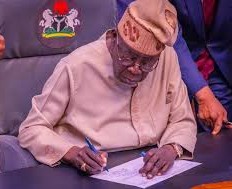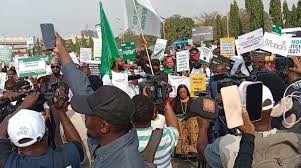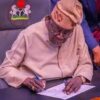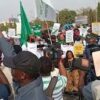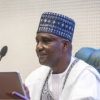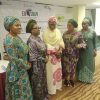During the National Public Hearing on the 1999 Constitution Review organised by the House of Representatives in Abuja, several women-led organisations—including the Network of Women with Disabilities and the League of Women Voters of Nigeria (NILOWV)—formally advocated for the enactment of the Gender Inclusion bills, which have been under consideration for an extended period. The
During the National Public Hearing on the 1999 Constitution Review organised by the House of Representatives in Abuja, several women-led organisations—including the Network of Women with Disabilities and the League of Women Voters of Nigeria (NILOWV)—formally advocated for the enactment of the Gender Inclusion bills, which have been under consideration for an extended period.
The hearing at the Transcorp Hilltop Hotel in Abuja included senators, members of the House of Representatives, traditional rulers, government officials, labour leaders, civil society organisations, stakeholders, journalists, and members of the public.
Former Cross River South Senator Florence Ita-Giwa called on lawmakers to support gender equity and equality for more inclusive governance and a stronger democracy.
“I appeal to my colleagues and indeed to the nation. Can you allow women to rule? Women cast their votes during elections, and I cannot deny the support of men in my own political journey. I rose to the position of Deputy Minority Leader through the backing of men. Now, we need that same support for women in leadership,” she said.
She emphasised that enacting the gender inclusion bill is crucial for fair governance, stating it raises—not lowers—standards for women. Women deserve recognition beyond Women’s Day, as they can lead, shape policy, and strengthen democracy.
Mrs Lois Awta, President of the Network of Women with Disabilities, noted the exclusion of persons with disabilities (PWDs) from governance. She stated that the absence of PWDs in government does not support efforts to address issues affecting people living with disabilities.
“We are at zero per cent participation in governance, yet excluded and underrepresented across all sectors. In Kenya, we have a visually impaired woman serving in parliament. Nigeria must move from exclusion to inclusion, and from policy to practice,” she said.
Mrs Awta commended the 10th Assembly for proposing 5% representation for women with disabilities in the constitution review.
“This inclusion shows there is productivity in disability,” she added.
During the session, women expressed gratitude to the 10th Assembly for the Reserved Seats Bill, which aims to add two seats per State House of Assembly for women. The bill also suggests 44 extra seats in the House of Representatives, 37 in State Assemblies, and 3 in the Senate—totalling 84 new seats for women nationwide.
Dr Irene Awuna Ikhegh, NILOWV President, called the bill vital to Nigeria’s democracy on behalf of women from all 36 states and the FCT.
Women represent more than 49% of Nigeria’s population, yet we hold less than 5% of seats in the National Assembly. This underrepresentation undermines development, stability, and responsive leadership,” she said. “This bill will open doors for capable, committed Nigerian women to serve at all levels.”
She noted that women are vital to informal economies, conflict mediation, and recovery, but remain underrepresented in governance.
Gender advocate Miss Farida Nabegu also expressed optimism that the reform would reshape Nigeria’s governance system.
“If passed, this legislation will transform decision-making, create balance, and send a strong signal about Nigeria’s commitment to gender equality. The fact that the hearing is happening openly, in front of the people, shows democracy at work. Women are standing up for themselves, and in the end, we shall certainly be favoured,” she said.


